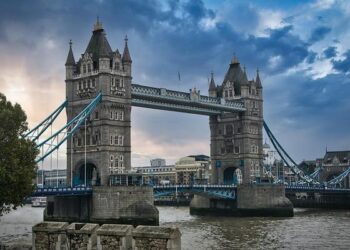Tragic Drowning of Young Rugby Player Ignites Demand for Improved Lifeguard oversight
A heartbreaking incident has cast a shadow over a family getaway in Cyprus, where a 21-year-old British rugby player tragically drowned. This event has sparked important concerns about the adequacy of lifeguard supervision at popular beach locations. Eyewitnesses reported that lifeguards seemed distracted by their phones during the critical moments leading up to the tragedy, prompting discussions about safety protocols and the responsibilities of those tasked with ensuring beachgoer safety. The untimely passing of this talented athlete, well-respected in his local rugby community, has left his family devastated and ignited urgent calls for enhanced vigilance among lifeguards to prevent such avoidable incidents.
Demands for Enhanced Lifeguard Training and Accountability
The tragic loss of a young rugby player during a family vacation has triggered public outrage and renewed calls for stricter regulations regarding lifeguard training and accountability. Witness accounts suggest that on-duty lifeguards were not fully attentive to their duties,reportedly spending time on personal devices instead of monitoring swimmers effectively.This negligence raises serious questions about current training protocols for lifeguards and highlights the need for unwavering focus in environments where safety is critical.
In light of this devastating event, various advocacy groups are urging authorities to reassess and strengthen lifeguard training programs. They emphasize that it is crucial for lifeguards to be held accountable while performing their roles. Proposed measures aimed at improving safety standards include:
- Regular updates on certification requirements along with ongoing training sessions.
- The establishment of strict guidelines ensuring continuous supervision throughout shifts.
- Mandatory emergency response drills designed to prepare guards for real-life scenarios.
- Tougher penalties imposed on those who neglect their responsibilities while overseeing public safety.
Scrutinizing Lifeguard Responsibilities During Emergencies: A Call for Accountability
The tragic drowning incident involving a British rugby player has highlighted serious concerns regarding the attentiveness and effectiveness of beachlifeguar services at busy tourist destinations. Reports indicate that some guards were allegedly preoccupied with personal devices rather than being alert to distress signals from swimmers needing help. This situation underscores not only the vital role played by lifesavers but also potential repercussions stemming from negligence during emergencies.
This occurrence raises essential questions about how well-prepared our lifesaving personnel are when faced with crises:
- Sufficient Training: Are current training programs equipping guards with necessary skills needed in emergencies?
- Monitoring Procedures: What systems are implemented ensuring continuous vigilance among staff?
- Pace of Response: How swiftly do guards react when confronted with distress situations?
The growing demand from families affected by such tragedies is pushing stakeholders towards advocating stricter regulations aimed at holding lifesavers accountable‚ÄĒpotentially leading toward policy reforms designed to prevent future occurrences like this one.
Community Reaction: Urgent Need For Regulatory Changes In tourist Areas
The unfortunate death of a young British athlete while vacationing in Cyprus has raised alarms concerning existing safety measures within tourist hotspots. Eyewitnesses noted that some beachlifeguar personnel appeared distracted or “messing around” on their phones as events unfolded‚ÄĒa lapse that has sparked outrage among community members seeking answers following this tragedy. The circumstances surrounding this incident highlight an urgent need not only for better oversight but also emphasize how crucial vigilant guardianship is when it comes down safeguarding visitors’ lives at beaches frequented by tourists worldwide.
Calls advocating regulatory reform across holiday destinations continue gaining momentum; stakeholders stress establishing clear-cut safety standards alongside enforcement mechanisms applicable both towards lifesavers as well facility operators alike.Industry experts propose several initiatives , including:
- Routine evaluations and assessments for all active guards ensuring readiness levels remain high throughout shifts;
- Mandatory inspections of all facilities operating along coastlines adhering strictly health & safety regulations;
- Enhanced surveillance </ strong>  ;at popular beaches utilizing technology like drones or cameras;
- Mandatory inspections of all facilities operating along coastlines adhering strictly health & safety regulations;
In light these recent developments , it‚Äôs evident thorough regulatory reform must take place‚ÄĒensuring no other families endure similar heartache due negligence occurring within vulnerable settings .
Charting A Path Forward
The heartbreaking drowning incident involving a young British rugby player during his family holiday serves as an alarming reminder regarding duty associated providing adequate protection against dangers present near water bodies .Eyewitness testimonies alleging distractions amongst guarding staff have fueled anger amongst grieving relatives alongside wider communities alike. As investigations progress , they underscore pressing needs surrounding implementation stringent protocols coupled rigorous trainings aimed safeguarding swimmers especially popular vacation spots . Ultimately , this tragedy stands testament importance fulfilling obligations tied preserving lives whilst highlighting dire consequences arising neglectful behavior exhibited under such circumstances . As loved ones mourn loss suffered here today , calls justice accountability grow louder emphasizing every life lost should catalyze systemic changes preventing future tragedies from occurring again .
















